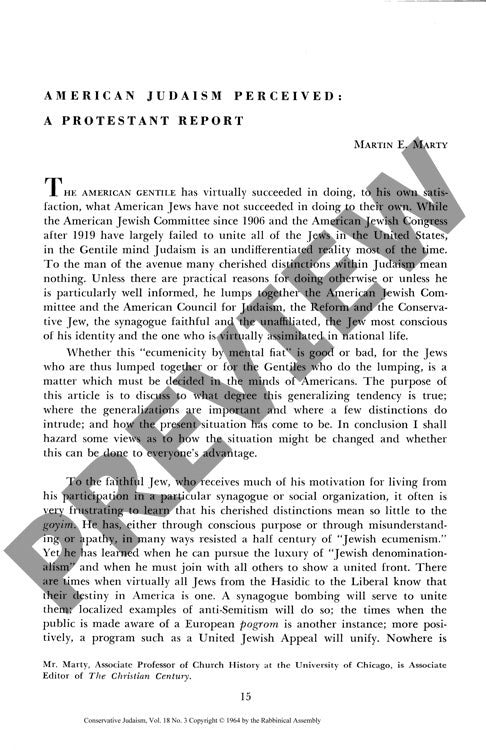American Judaism Perceived a Protestant
Couldn't load pickup availability
Protestant Americans consistently view Judaism as a unified religious entity, despite the reality of deep denominational divisions and organizational diversity within American Jewish communities. Drawing from sociological surveys including the 1952 Ben Gaffin Associates study, Lenski's Detroit metropolitan research, and Protestant curricula analysis, this research reveals a striking disconnect between internal Jewish religious complexity and external Protestant perceptions. While Jewish organizations have largely failed to unite American Jews institutionally since 1906, Protestant views create an "ecumenicity by mental fiat" that collapses Orthodox, Conservative, Reform, and unaffiliated Jews into a single conceptual category. Protestant awareness of Jewish distinctions emerges only during specific crises, threats, or highly publicized events, with most differentiation limited to extreme positions rather than mainstream variations. Protestant perceptions are shaped primarily by charismatic Jewish individuals like Martin Buber and Abraham Joshua Heschel rather than by denominational representatives or organizational spokesmen. This generalization tendency reflects broader patterns of American religious pluralism, where practical considerations and sociological simplification override theological distinctions, potentially anticipating future ecumenical developments within Judaism itself.

More Information
-
Physical Description
-
Publication Information
Published
ISBN
-
Publication Credits
Martin Marty

